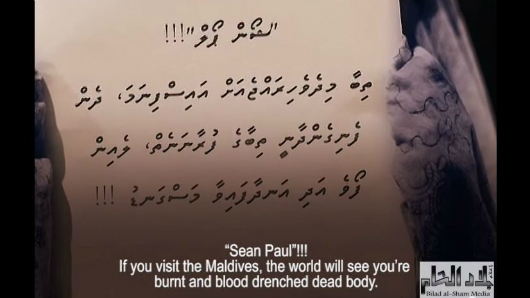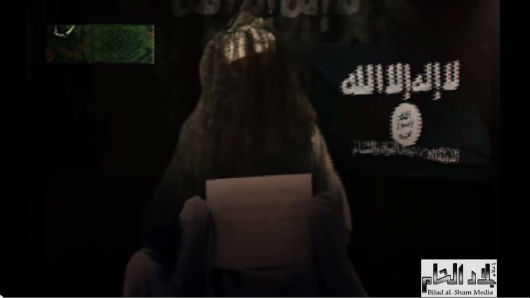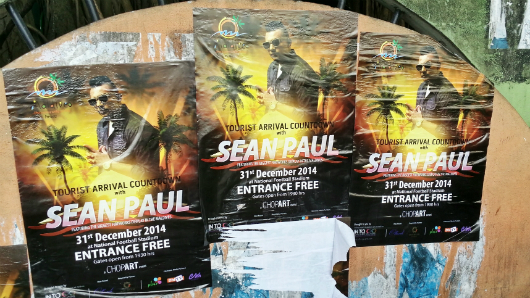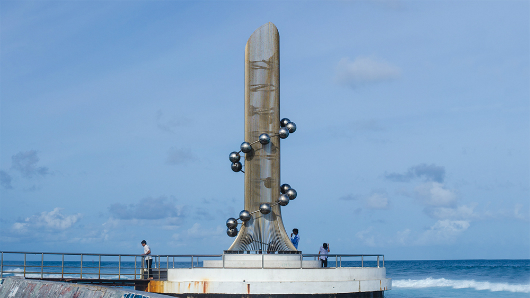The opposition Maldivian Democratic Party (MDP) has called on President Abdulla Yameen to repent for insulting Islam by allegedly likening the Maldives to heaven in the afterlife.
The statement comes after Yameen on Thursday urged a visiting Saudi Arabian trade delegation to “get warmed up” for heaven in the afterlife by investing in paradise on earth, the Maldives.
“As Muslim brothers, we all strive to go to Jannathul Firdous [paradise]. While we have a paradise in the heavenly Maldives, I urge all Saudi business people, if you are seeking to go to Jannathul-paradise in your afterlife, why don’t you get warmed up for that? Paradise is here in the Maldives,” the president had said in a speech in English.
The MDP claimed Yameen had directly compared the Maldives to heaven in the afterlife and said that his remarks are demonstrative of the “concerning level” to which Islamic unity has deteriorated in the Maldives.
“This party advises and calls on President Yameen to repent with Allah and apologize for his statement that has insulted the holy religion of Islam,” a statement issued on Friday said.
However, the President’s Office in its own statement clarified that Yameen’s comment that “paradise is here in the Maldives” simply meant that the country’s beauty is unparalleled in the world.
Yameen’s comments were an invitation to the Saudis to invest and gain returns from the beauty of Maldives, the statement said.
The President’s Office also slammed newspaper Haveeru for its “unprofessional” coverage of the speech, alleging the report titled ‘President calls for investment in heaven-like Maldives to go to heaven’ had misled citizens.
The reporter either did not understand English or the report was a deliberate attempt to incite hatred, the statement said.
President Yameen is committed to freedom of press, the statement said, and will not persecute reporters or pursue charges at court. However, he “does not welcome attempts to incite fear, mislead public and create disorder,” it continued.
The President’s Office has called on media oversight bodies to ensure such incidents are not repeated.
Former President Mohamed Nasheed garnered similar controversy in April 2013 for comments he made in a speech in Denmark calling for an alternative Islamic narrative to counter radical views.
Yameen’s ruling Progressive Party of the Maldives (PPM) at the time claimed Nasheed had in fact called for an alternative to the Quran and Hadith.
“A former president of a 100 percent Islamic nation speaking in such a fashion, abusing the religion of Islam and mocking Prophet Muhammed is a derogatory act that brings disgrace to the country in front of other Islamic nations,” read the statement.
The religious Adhaalath Party (AP) also held a demonstration in protest and called to “hang Nasheed to death”.
The PPM and Adhaalath’s opposition to Nasheed formed part of wider allegations that MDP would destroy Islam in the country.
They claimed Nasheed had “placed idols” in Maldivian lands – a reference to the SAARC monuments gifted to the country by South Asian nations during the 2011 SAARC Summit hosted in Addu Atoll – and had “given our assets to foreigners” – a reference to the concession agreement to manage and upgrade the international airport granted to Indian firm GMR.
Related to this story
President Yameen urges Saudis to invest in Maldives and “get warmed up for” heaven
Maldives divided by “Islamic” and “anti-Islamic”: former President Gayoom



